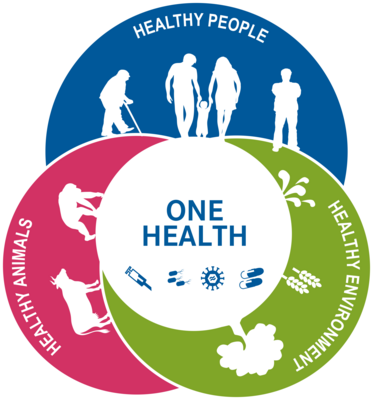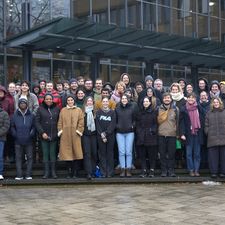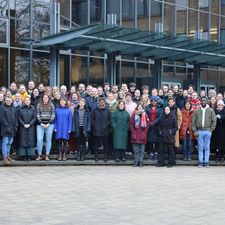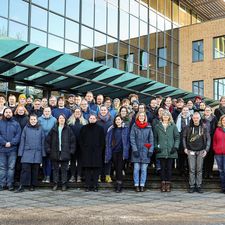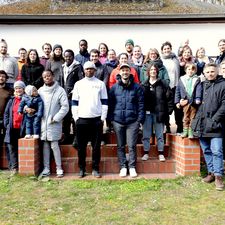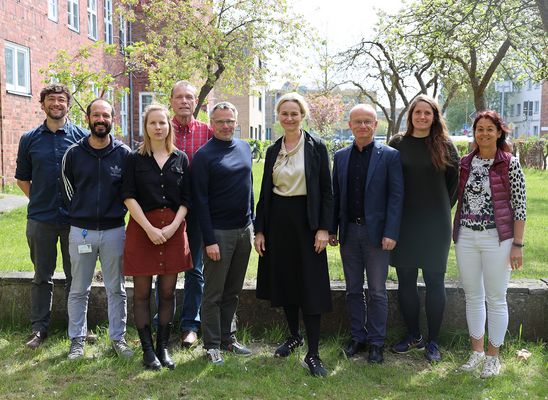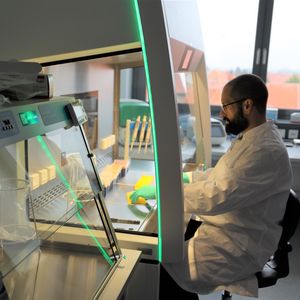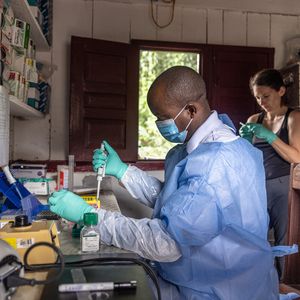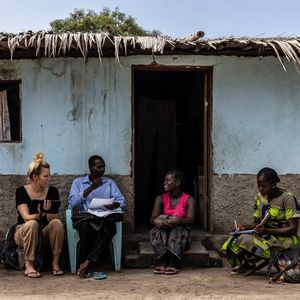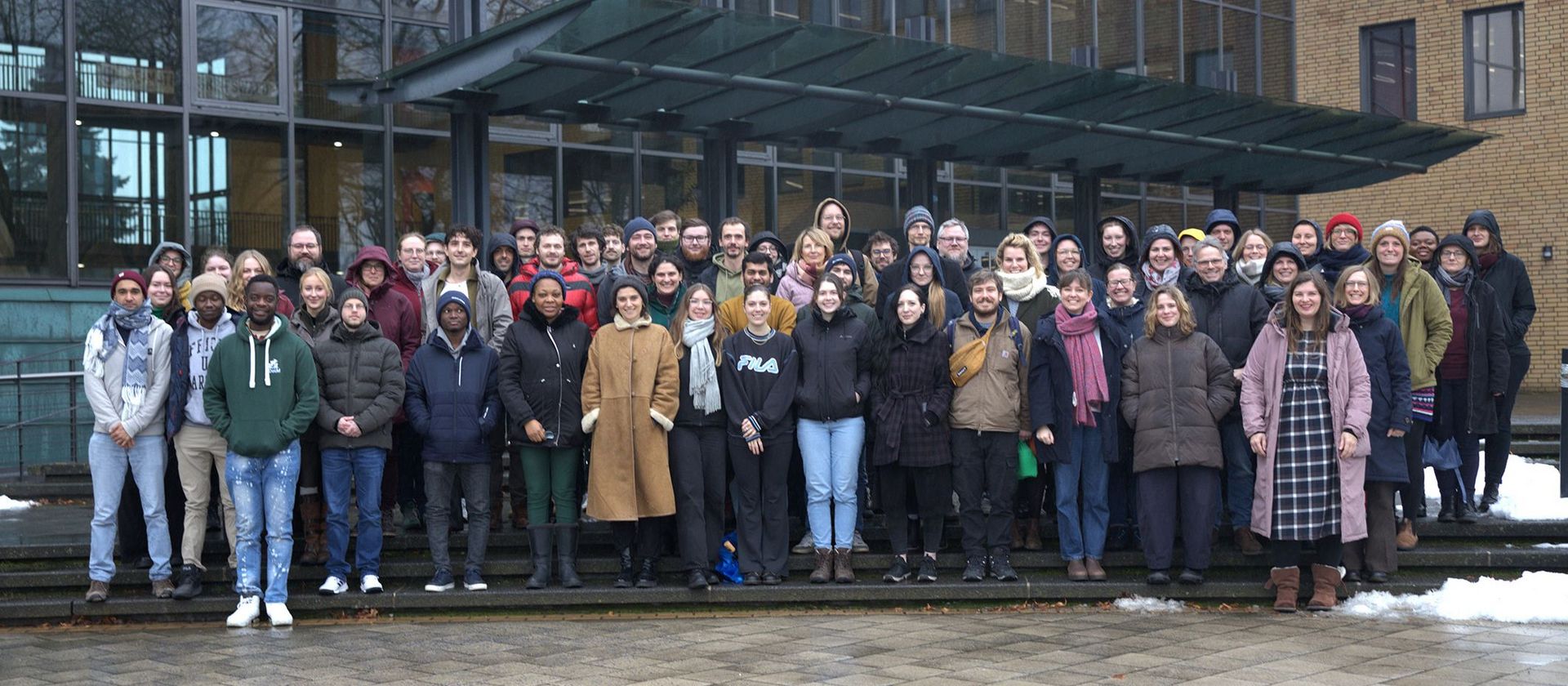
Interdisciplinary for One Health - What we do
The Helmholtz Institute for One Health (HIOH) in Greifswald was founded in 2021 as a site of the Helmholtz Centre for Infection Research (HZI). In close cooperation with its local founding partners, the University of Greifswald, the University Medical Center Greifswald and the Friedrich-Loeffler-Institute Federal Research Institute for Animal Health Greifswald-Riems, the HIOH is dedicated to interdisciplinary research on the interrelationships between human, animal and environmental health.
Global challenges such as climate change, globalization, intensified agriculture, and habitat loss drive the emergence and spread of infectious diseases. Pathogens cross species barriers, spread rapidly, and often develop resistances against antibiotics—while effective therapeutics and vaccines remain scarce. Addressing critical knowledge gaps in the origin and transmission of zoonotic infections and antimicrobial resistance, the HIOH advances interdisciplinary research to strengthen pandemic preparedness. With cutting-edge infrastructure in Greifswald and a strong network of founding partners and long-term collaborators worldwide, HIOH investigates the human–animal–environment interface through comprehensive data and sample collection. Specifically, we focus on two model regions: Mecklenburg-Western Pomerania in Germany and the African tropics. The insights and infrastructures developed in these model regions are designed to inform and enable global-scale health monitoring across species and ecosystems.
The Team - Who we are
Since its founding ceremony in April 2022, HIOH has grown steadily and significantly. We are pleased that our team of currently more than 100 scientific, technical and administrative staff from ten nations will continue to grow over the coming months and years.
Management

Prof Dr Fabian Leendertz
Founding Director & Head of Department Ecology and Emergence of Zoononotic Diseases
+49 3834-3916-101 E-Mail
Research groups

Ecology and Emergence of Zoonotic Diseases
Prof Dr Fabian Leendertz

Epidemiology and ecology of antimicrobial resistance
Prof Dr Katharina Schaufler, PhD

Pathogen Evolution
Prof Dr Sébastien Calvignac-Spencer

Evolutionary Community Ecology
Dr Jan Frederik Gogarten

One Health Surveillance
Dr Fee Zimmermann
Administrative & Support Team
Scientific Advisory Board (SAB)
The HIOH is supported by a Scientific Advisory Board (SAB) of nine internationally renowned experts from diverse disciplines. The Board provides valuable guidance on strategic and scientific matters, helping to shape the institute’s direction. At least once a year, its members meet with HIOH leadership and research teams to exchange on current developments. Additional meetings are held as needed to explore specific topics in greater depth.
Prof Dr Thea Kølsen Fischer, University of Copenhagen, Denmark (chair person)
Prof Dr Teresa M. Coque, Instituto Ramón y Cajal de Investigación Sanitaria, Madrid, Spain
Prof Dr Heinz Feldmann, National Institutes of Health, Hamilton, USA
Dr Alpha Kabinet Keita, Gamal Abdel Nasser University of Conakry, Guinea
Prof Dr Dr h.c. mult. Thomas Mettenleiter, One Health High Level Expert Panel (OHHLEP), Greifswald, Germany
Prof Dr Hendrik Poinar, McMaster University, Hamilton, Canada
Prof Dr Oliver Pybus, University of Oxford, United Kingdom
Prof Dr Simone Sommer, Universität Ulm, Germany
Prof Dr Andrea Winkler, Technical University Munich, Germany
A global task - Where we work
HIOH’s research is anchored in a global infrastructure and guided by regional priorities. Our headquarters in Greifswald, Germany, hosts state-of-the-art molecular laboratories embedded in a strong local research network. A new research facility is currently under construction and is scheduled for completion in 2027. This will further expand our diagnostic capacities and enable safe work with infectious pathogens. We also operate long-term satellite laboratories in key international locations: at the University Hospital of Bouaké in Côte d’Ivoire, and in the Dzanga Sangha Protected Areas in the Central African Republic. Both labs are fully equipped for sample processing and diagnostics and serve as regional bases for training, outbreak response and long-term health monitoring in close partnership with local institutions.
Geographically, our research is focused on regions where health risks at the human–animal–environment interface are particularly dynamic. In our home region of Mecklenburg-Western Pomerania, we collaborate with local partners on One Health topics such as wildlife monitoring, antimicrobial resistance and land-use change. In the African tropics, we focus on biodiversity hotspots with a high potential for zoonotic spillover. This includes, amongst others, our long-term engagement in Taï National Park, Côte d’Ivoire, as well as continuous data collection in the Dzanga Sangha region.
Our long-term field presence is complemented by short-term global missions – ranging from ad hoc outbreak response deployments to targeted studies such as historical specimen analysis in Vienna, Austria; waterhole sampling in the Masai Mara, Kenya; or the investigation of ancient soils in Spitsbergen, Norway.
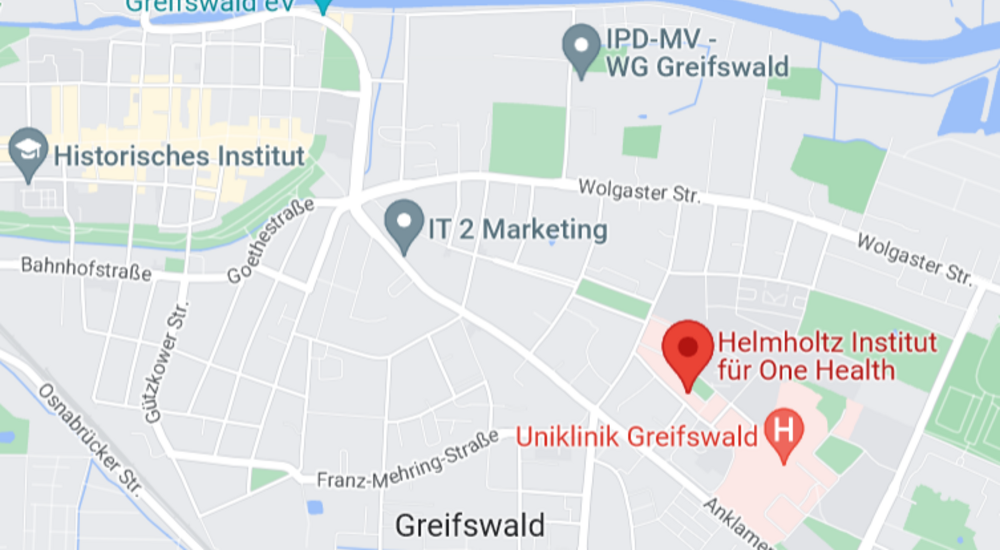
CONTACT US
Helmholtz Institute for One Health | Fleischmannstraße 42 | 17489 Greifswald | phone: +49 3834 3916 101

